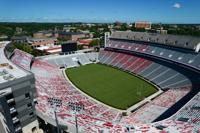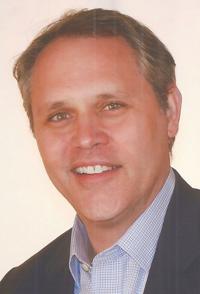During my less-than-stellar baseball career in Bagley Park, the park’s name changed seemingly overnight.
According to news articles from the time, it was Buckhead Baseball’s opening day in 1980. Hundreds if not a thousand players, coaches, parents and supporters watched as the city unveiled a new sign at the Pharr Road entrance — Frankie Allen Park.
Allen was a longtime umpire and took care of the park; painting the lines on the baseball fields, cutting the grass — anything and everything.
I was certainly there in 1980. Opening day was required.
We paraded around the ball fields in our little uniforms, and after a rendition of the Star Spangled Banner, I’m sure someone said some words over the public address system. I was likely too busy shoving dirt in someone’s collar to notice.
I definitely didn’t heed the name change. We continued to call it Bagley Park, which I do to this day.
That is why I was eager to hear Buckhead Heritage Society’s speaker two weeks ago. Elon Butts Osby titled her talk, “Bagley Park; Just another neighborhood in Buckhead.” She is Ida and William Bagley’s granddaughter.
The title slide was a faded picture of three boys, arms over shoulders, in front of a nice home with a large front porch.
It could be from a neighborhood anywhere. It’s remarkable because of the location and color of the boys.
It was in the heart of Buckhead and they were Black.
Indeed African-American families made up the neighborhood that came to be known as Bagley Park. It preceded the arrival of William Bagley and the development which took his name.
As early as the 1870s, formerly enslaved people lived there, while working on the farms and in the homes of wealthy white families.
Mount Olive Methodist Church anchored the community. The church’s cemetery, visible from Pharr, is all that remains. It is this final resting place of Osby’s grandparents.
Developer John Owens incorporated the community as Macedonia Park in 1921. He built several modest homes on small lots. Two grocery stores, two churches and a blacksmith eventually served the residents.
Bagley arrived after abandoning his 84-acre farm in Forsyth County in 1912. He was among the exodus of African-Americans fleeing violent white mobs, who turned on the farmers who tended the fertile northern Georgia land.
In 1928 he purchased six lots in Macedonia Park for $2,100. He was an intelligent man as evidenced by the school for Black children on his Forsyth County farm. He was an entrepreneur operating several endeavors while watching over the residents of what would come to be known as Bagley Park.
He was the unofficial mayor, according to Osby.
In the 1940s, the residents of Garden Hills campaigned for Fulton County to condemn the neighborhood. They complained of the stench of open sewers and the noise.
As concerns the smell, they weren’t wrong.
Bagley Park didn’t have running water or sewage connection, services the county supplied to Garden Hills. That’s likely not an oversight.
That is to say nothing of the fact Macedonia Park was there before Garden Hills, but I digress.
The county approved $50,000 to acquire the lots. The residents fought it. Those who didn’t sell had their properties taken by eminent domain.
By 1952, the neighborhood was gone, and a park with baseball and softball diamonds, tennis courts and outdoor grill pavilions took its place.
Osby said her family — especially her mother, who grew up in Bagley Park — were crushed when they learned of the name change.
While it is nearly impossible to prove, she said part of the agreement reached between the residents and the county was Bagley’s name would remain on the park. He died in 1939, well before the upheaval over the neighborhood.
She said she isn’t a proponent of changing the names of places, which has become de rigueur.
She can’t say it, but I will. Her grandfather’s name needs to be on the park, and not just on the street through it, which it is.
I realize in today’s environment, that’s controversial, but it doesn’t have to be. There’s already a solution.
Susan Conger wrote a paper on the park’s history while working on her Master’s degree at Georgia State University.
She concluded her report with this:
“…the signage at the entrance could be adapted to recognize Frankie Allen, Buckhead Baseball and Historic Bagley Park. This would specifically link the public park to its origins in the African-American community.”
Let’s do that.






























(0) comments
Welcome to the discussion.
Log In
Keep it Clean. Please avoid obscene, vulgar, lewd, racist or sexually-oriented language.
PLEASE TURN OFF YOUR CAPS LOCK.
Don't Threaten. Threats of harming another person will not be tolerated.
Be Truthful. Don't knowingly lie about anyone or anything.
Be Nice. No racism, sexism or any sort of -ism that is degrading to another person.
Be Proactive. Use the 'Report' link on each comment to let us know of abusive posts.
Share with Us. We'd love to hear eyewitness accounts, the history behind an article.